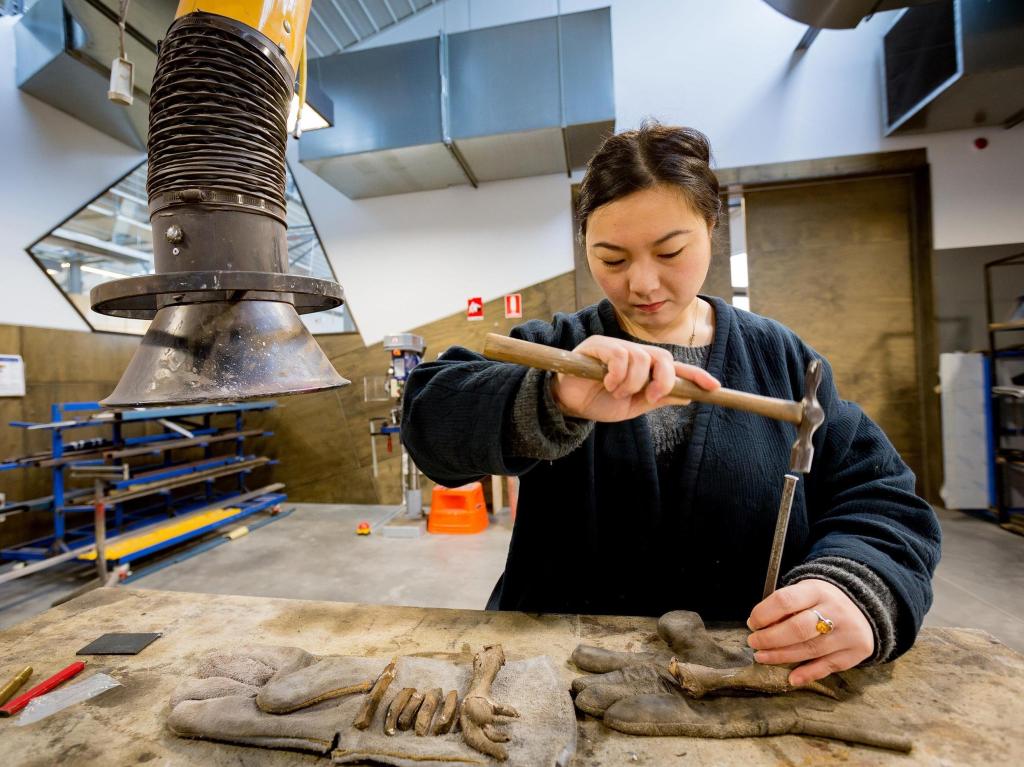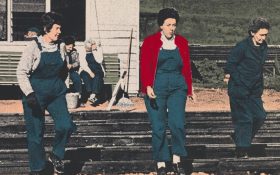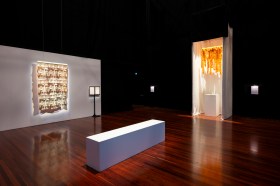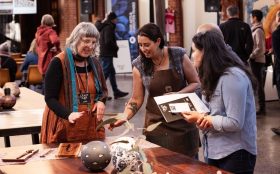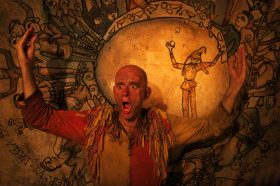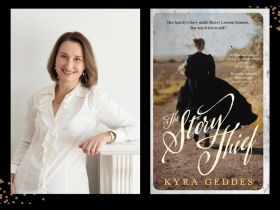Master of Contemporary art student, Siying Zhou, in the VCA teaching workshop. Photograph by Sav Schulman.
‘I wanted to challenge myself to grow as an artist. I wanted to explore and develop my process in a supportive and engaging environment while at the same time developing my network of collaborators, trainers and industry contacts.’
Five years ago, Nadine Dimitrievitch couldn’t have imagined that she’d be completing a graduate degree in dance. Having trained in ballet throughout her school years, she turned to storytelling and pursued a career in acting, starting her own physical theatre company in 2013. However, Dimitrievitch soon realised she wanted to develop stronger research and writing skills, and further investigate her own creative processes and values. Fast forward a few years, and she’s about to graduate from the Master of Dance degree at the Victorian College of the Arts (VCA) in Melbourne.
Su Baker, Director of the VCA, says there are multiple benefits to undertaking a graduate program: ‘The main thing graduate study does for people is that it consolidates all the learning they have done in their undergraduate program. With graduate studies you deepen your understanding and you get to exercise your skills at a high level.’
For Dimitrievitch, its value is also in the opportunity it provides to collaborate with other passionate and highly-skilled artists. ‘I’ve relished the opportunity to engage with other creative practitioners and explore different ways of creating and developing work,’ she says. ‘I’ve loved meeting and working with dancers and choreographers at all different stages of their careers, and I’ve loved learning and collaborating with other students, not just of dance, but from other areas within the VCA.’ Dimitrievitch admits that she very much feeds on the creative energy of others.
A fertile environment for your art
For any artist, being immersed in an inspiring cultural environment is paramount. Siying Zhou, a recent international graduate of the VCA’s Master of Contemporary Art, was drawn to Melbourne’s rich artistic culture. ‘After working as the program manager at the Northern Centre for Contemporary Art in the Northern Territory (formerly 24hr Art), I decided to focus on my art practice and get professional advice and assistance. And I had always been attracted to the vivid art and creative scene in Melbourne.’
Baker emphasises that having the right micro-environment in which to practise your art is similarly vital. ‘At VCA you work in spaces that are designed for professional activity. For example if your discipline is visual arts you are in the studio; if you work in theatre you work in a theatre space, and if you are studying dance you see the operations of a dance studio. The learning spaces are part of your resources.’
Learn more about the VCA’s graduate programs
Paddy Macrae, who undertook the intensive 18-month-long Master of Screenwriting at the VCA and is now a script development executive with Matchbox, agrees: ‘The most valuable parts of my degree were the craft principles and supervised writing time. The craft stuff I use constantly, and the hours writing that I did then allowed me to move quickly through the early material that you have to pump out before you can get to the good stuff,’ Macrae says. ‘That intensive period helps hugely in my work now.’
Find mentors and networks
Macrae’s teacher at the VCA has left a vivid and lasting impression. ‘I had Ben Michael supervise me all the way through. I’m sure all the supervisors are fantastic but Ben went so far above and beyond with me and my work that I felt compelled to put a huge amount of work in.’
Such an experience is typical of graduate studies, says Baker. ‘You will start working with your teachers as a peer and as a colleague, rather than the usual teacher-student relationship. So it is quite a different relationship with the institution and a different experience for the student,’ she says.
‘You really start to build a network of professional peers and professional colleagues … and the peer group that you study with are often a great support to you.’
Such creative connections and networking opportunities can have lifelong impact on your artistic career.
‘Often graduates go off together and open studios, collaborate together, do projects together, and in a way that becomes the profession itself,’ Baker says. ‘Each generation effectively becomes the art world, or the art work … they become the profession.’
